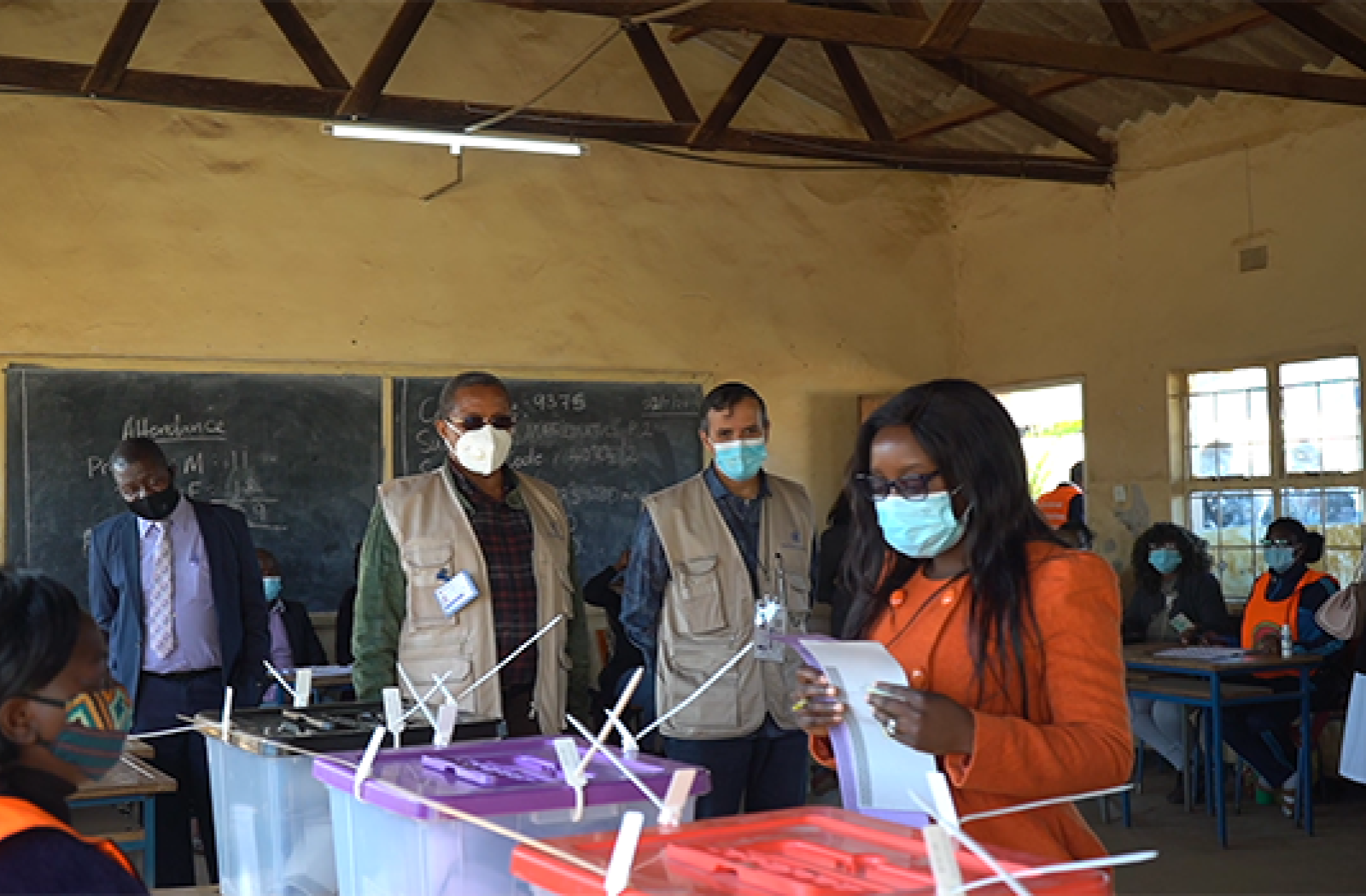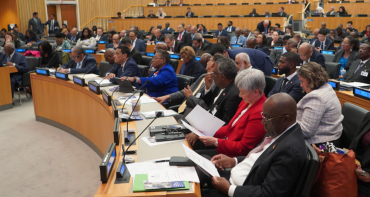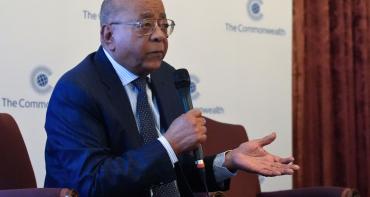At a time when the world is going through multiple challenges that have, to a large extent, been amplified by the debilitating effects of the Covid-19 pandemic, it is incumbent upon peacebuilding institutions to ramp up investments in national and international efforts to strengthen inclusive, equitable and sustainable structures for long-term post-pandemic peace and prosperity.

A blog by Koffi Sawyer, Political Officer (Africa), Governance and Peace Directorate, Commonwealth Secretariat
At a time when the world is going through multiple challenges that have, to a large extent, been amplified by the debilitating effects of the transnational Covid-19 pandemic, it is incumbent upon peacebuilding institutions to ramp up investments in national and international efforts to strengthen inclusive, equitable and sustainable structures for long-term post-pandemic peace and prosperity.
The theme of this year’s International Day of Peace, “Recovering better for an equitable and sustainable world”, presents yet another opportunity to reflect collectively on the importance of carefully designed strategic engagements that could help in mitigating and transforming current challenges into opportunities for building a more resilient, peaceful and sustainable future -: a future currently undermined by increasing threats to sustainable peace, development and democracy across the world.
Supporting peaceful and credible elections
A key area in democracy promotion efforts that continues to suffer considerable challenges in several countries – and worsened by the Covid-19 pandemic - is the holding of peaceful, inclusive, and credible elections, as these processes have, in many instances, become enablers and catalysts of human rights abuse, high-level political tensions, violence and civil strife.
The recently held general elections in the Republic of Zambia and the country’s peaceful political transition from one President and governing party to the other, the third such democratic transition since the reintroduction of multiparty politics in 1990, provided grounds for cautious optimism in international democracy assistance.
While considerable optimism was induced by the peaceful transfer of political power from President Edgar Lungu to President Hakainde Hichilema, the challenges that characterised the pre-election environment, especially electoral violence between then governing Patriotic Front (PF) and the then main opposition United Party for National Development (UPND), generated huge concerns and anxieties ahead of the polls.
In recognition of the concerns raised by stakeholders during the Commonwealth Secretariat’s pre-election assessment mission to Zambia in April 2021, the Secretariat adopted a two-pronged approach to supporting inclusive, peaceful, and credible elections, namely through supporting a home-grown conflict prevention initiative ahead of the elections and deploying a Commonwealth election observer group to observe the process.
In collaboration with domestic partners, the Commonwealth designed a peace initiative that was subsequently implemented in collaboration with the United Nations.
Forming the Coalition for Peaceful Elections
By helping to forge the Coalition for Peaceful Elections, an inclusive and participatory coalition that brought together Zambia’s Church Mother Bodies and the Zambia Centre for Interparty Dialogue, supported by several other strategic institutions, the Commonwealth contributed towards establishing a broad-based, inclusive platform to promote peaceful elections.
The Coalition for Peaceful Elections in Zambia, a domestically owned and driven initiative, engaged political and electoral stakeholders to help promote dialogue and foster peace before, during and after the elections.
A key achievement for the Coalition for Peaceful Elections in Zambia was the holding on 15 July of a peace conference, where the main political party leaders reaffirmed their commitment to peaceful elections before the nation.
This event saw the support of both the Commonwealth and the United Nations, with the Commonwealth Secretary-General, The Rt Hon Patricia Scotland QC, and the United Nations Special Representative of the Secretary-General to the African Union HE Hanna Tetteh, delivering messages of support.
The Coalition also spearheaded a number of other initiatives, including promoting dialogue, delivering peace messaging, and organising an ecumenical service for peaceful elections that was attended by political leaders. This initiative and a number of other previous Commonwealth initiatives to promote dialogue and socio-political cohesion in Zambia, have been duly recognised by several Zambians, including the Head of State, HE President Hakainde Hichilema, to have contributed towards shaping the country’s peaceful political transition.
A peaceful and democratic transition in Zambia
In addition to the above-mentioned peace initiative, the Commonwealth Secretary-General deployed a highly powered team of eminent persons that formed the Commonwealth Observer Group (COG), led by former President Jakaya Kikwete of Tanzania, to observe these elections.
In addition to playing its usual observation role, the COG – complementing other peace efforts - also played a crucial good offices role in securing a peaceful transition by mediating between Presidents Lungu and Hichilema to address post-election day challenges that arose.
Using his status as a respected African elder Statesman, President Kikwete, in consultation and close collaboration with domestic and other international stakeholders/counterparts, helped efforts to forge consensus and build bridges between the two main political rivals, leading to the peaceful political outcome that the people of Zambia and the international community today celebrate.
While we celebrate this additional milestone in Zambia’s democracy-consolidation journey, it is important to maintain positive traction by working with the new government and stakeholders to address the root causes of the violence and tensions that characterised the polls.
It is through such continued strategic partnerships and effective collaboration with both domestic and international partners that sustainable and inclusive reforms that mirror equity, equality and justice can be instituted for stronger democratic recovery and consolidation.
Through reinforcing collaborative and coordinated efforts with domestic partners, international actors played what several analysts have widely recognised to be a positive role in Zambia’s 2021 general elections. This contribution was only possible through the deliberate, trusted, and strategic partnerships built over the years.
It is through such strategic international-domestic partnerships and tailored interventions that the global community can successfully forge effective frameworks for collaboration that would help all corners of the world recover better for a sustainable, equitable and more resilient post-pandemic global community of nations.



